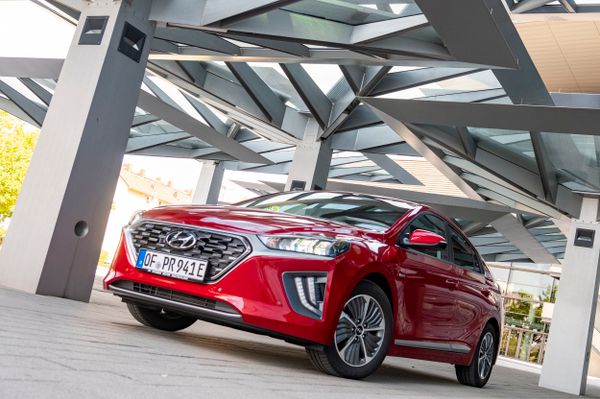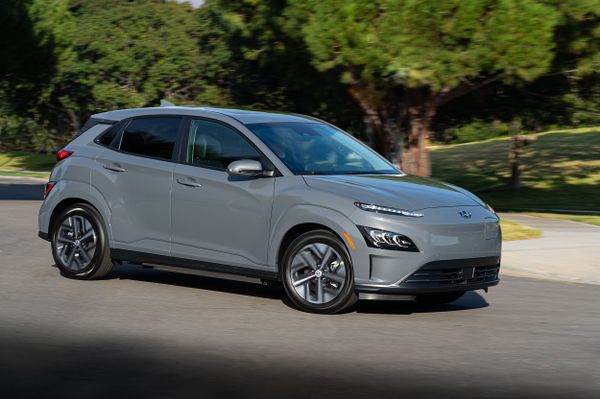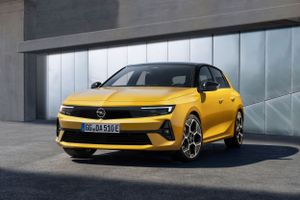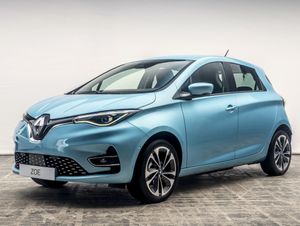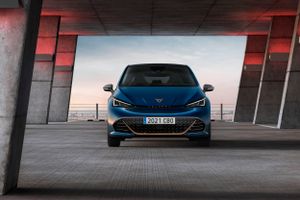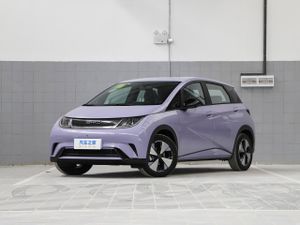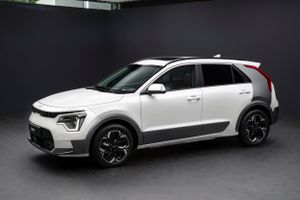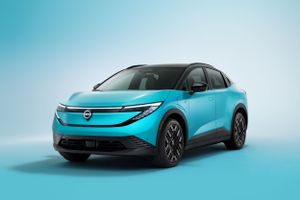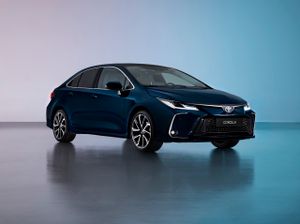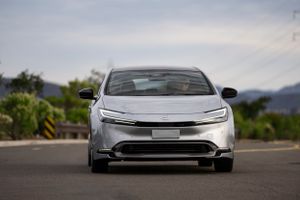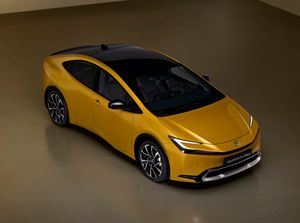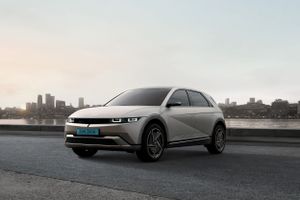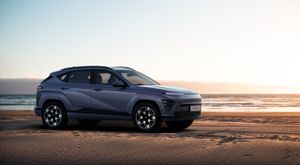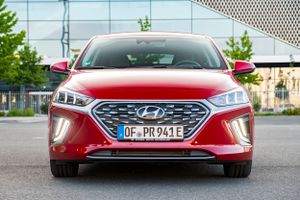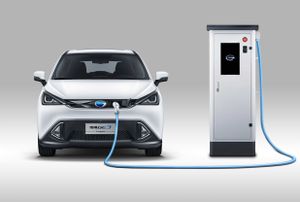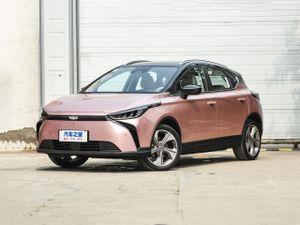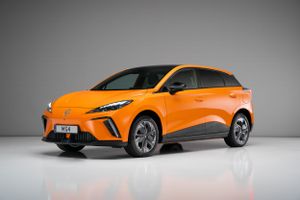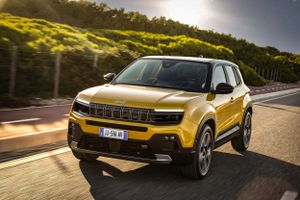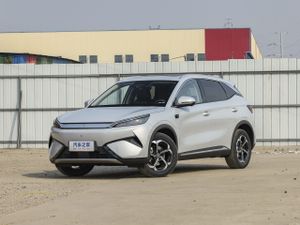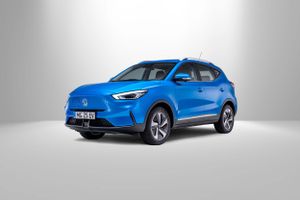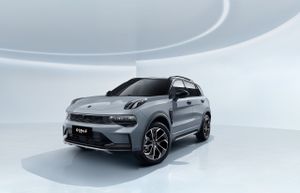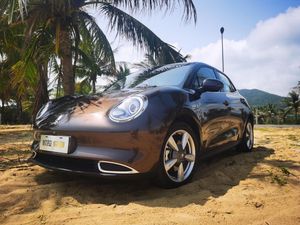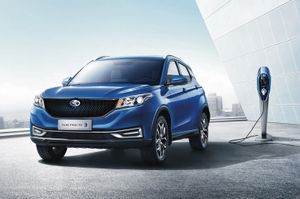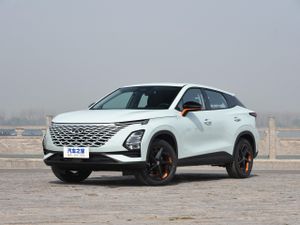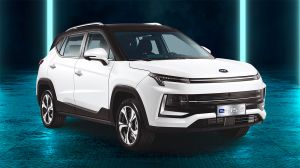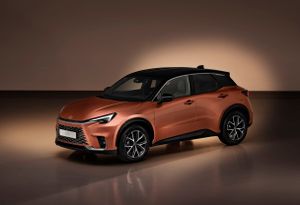Comparison of Hyundai IONIQ and Hyundai Kona EV
Comparison of Hyundai IONIQ and Hyundai Kona EV
Characteristics
Hyundai IONIQ and Hyundai Kona EV
Transmission
Automatic
Automatic
Number of gears
1
1
Type of drive
FWD
FWD
Top speed
165 km/h
155 km/h
Acceleration to 100
9.9 sec
9.9 sec
Curb weight
1 527 kg
1 625 kg
Max weight
1 970 kg
2 020 kg
Length
4 470 mm
4 205 mm
Width
1 820 mm
1 800 mm
Height
1 450 mm
1 570 mm
Wheelbase
2 700 mm
2 600 mm
Front track width
1 563 mm
Rear track width
1 577 mm
Trunk volume min
455 l
332 l
Trunk volume max
1 410 l
1 114 l
U-turn diameter
10.6 m
10.4 m
Wheel size
205/60 R16
215/55 R17
Full charge home
120
1020
Full public charging time
360
70
Engine type
Electro
Electro
Battery power
38.3 Kwh
39.2 Kwh
Maximum power
136 (100 )
136 (100 )
Maximum torque N⋅m
295
402
Front suspension
Independent, spring
Independent, spring
Rear suspension
Independent, spring
Independent, spring
Front brakes
Ventilated disc
Ventilated disc
Rear brakes
Disс
Disс
Clearance
150
158
Trim version
Hyundai IONIQ and Hyundai Kona EV
Driver's airbag
Passenger airbag
Side front airbags
Window airbags (curtains)
Driver's knee airbag
Driver drowsiness detection
Tire pressure sensors
Locking the rear door locks
Keyless central locking
Immobilizer
Rear-view camera
Isofix for the back row
Cruise control
Adaptive Cruise Control
Adaptive Cruise Control
Anti-lock braking system (ABS)
Electronic stability program (ESP)
Emergency brake assist (BAS, EBD, EBA)
Automatic slip regulation (ASR)
Collision avoidance system
Lane departure warning system
Blind spot monitoring system
Pedestrian detection system
Electric gear shifting
Hill start assist (HAS)
Drive mode selection system
Rear Cross-Traffic Collision Warning and Collision-Avoidance Assist (RCCW, RCCA)
Rear occupant alert system
AUX
USB
Bluetooth
12V
Carplay
Android Auto
Wireless Charging for Smartphone
Voice control
Sound
Audio system
Speakers
6 speakers
Steering-wheel heater
Decorative interior lighting
Leather gear shift
Leather steering wheel
Tinted glass
Power window
Seat adjustment
Front seats adjustment
Front seats adjustment
Driver's seat adjustment
Front seat adjustment
Seat trim
Fabric seats
Front seats
Steering wheel height adjustment
Steering wheel reach adjustment
Power steering
Active power steering
Rear parking sensors
Front parking sensors
Air conditioner
Dual-zone climate control
Single-zone climate control
On-board computer
Digital instrument cluster
Keyless entry system
Engine Start Button
Power folding mirrors
Power mirrors
Multifunction steering wheel
Electronic parking brake
Remote start-up
Headlights
LED headlights
Rear LED lights
Rear LED lights
LED headlights
Daytime running lights
Light sensor
Rain sensor
High beam assist
Diameter
R16
R17
Material
Alloy
Alloy
Photos
Hyundai IONIQ
Hyundai Kona EV
Comparison of Hyundai IONIQ with other cars
Comparison of Hyundai Kona EV with other cars
Today on the Market
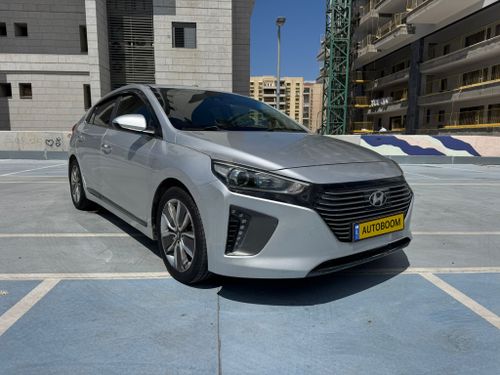
Hyundai IONIQ, 2018
₪ 75 000
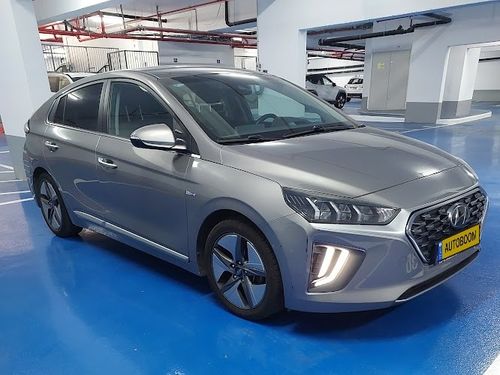
Hyundai IONIQ, 2020
₪ 107 000
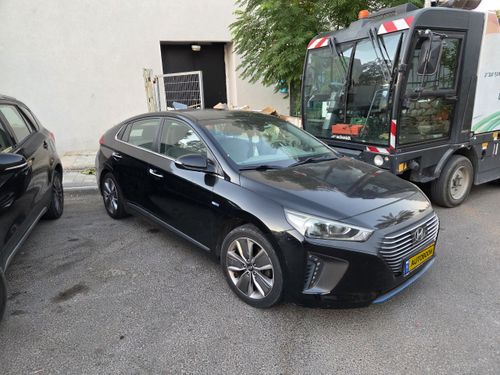
Hyundai IONIQ, 2017
₪ 65 000
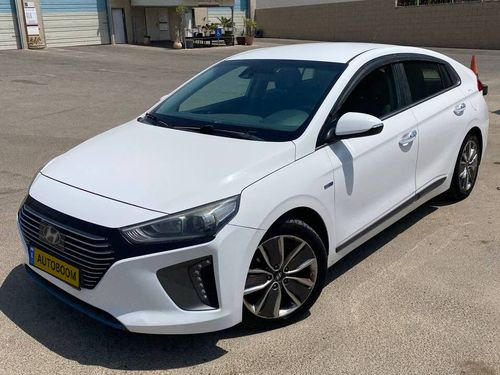
Hyundai IONIQ, 2017
₪ 59 900
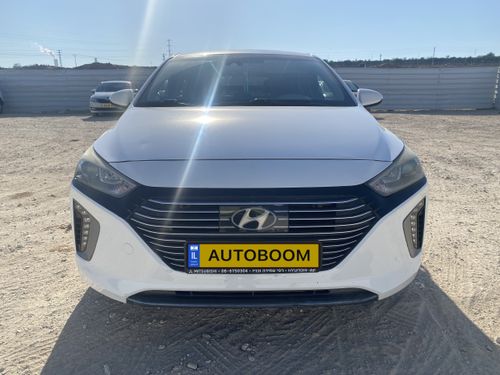
Hyundai IONIQ, 2018
₪ 75 000
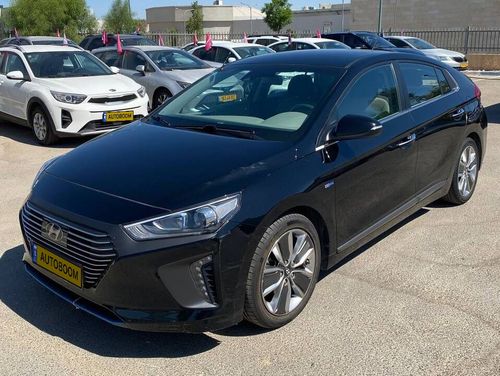
Hyundai IONIQ, 2018
₪ 76 900
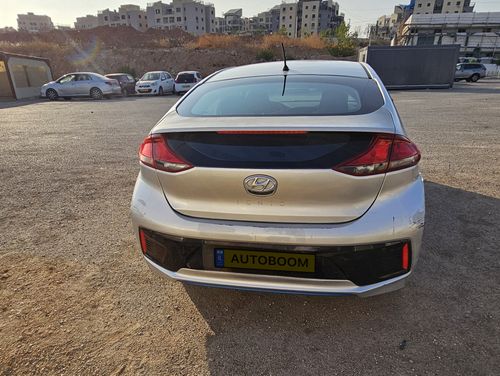
Hyundai IONIQ, 2017
₪ 50 000
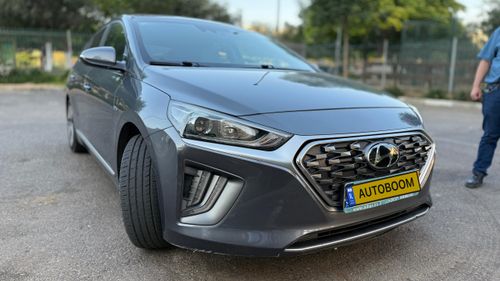
Hyundai IONIQ, 2020
₪ 87 500
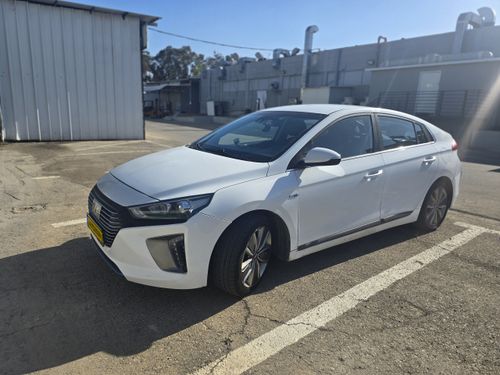
Hyundai IONIQ, 2018
₪ 51 000
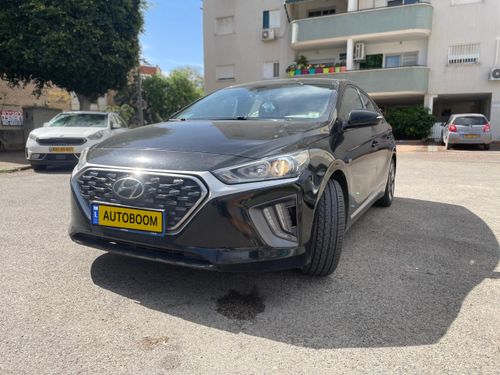
Hyundai IONIQ, 2021
₪ 87 000
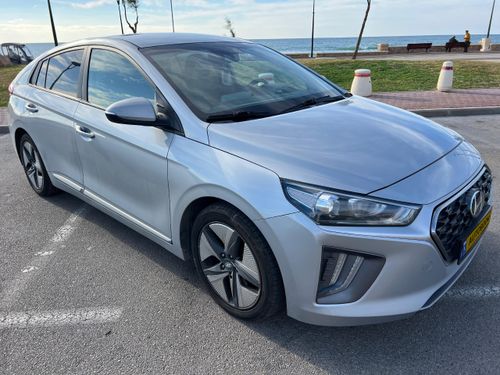
Hyundai IONIQ, 2021
₪ 105 500
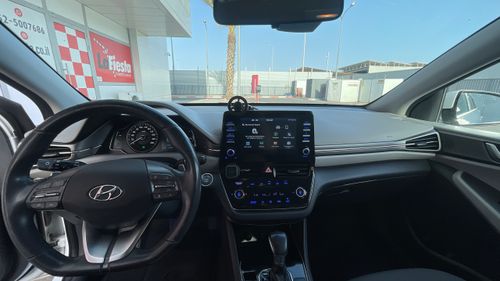
Hyundai IONIQ, 2020
₪ 77 000
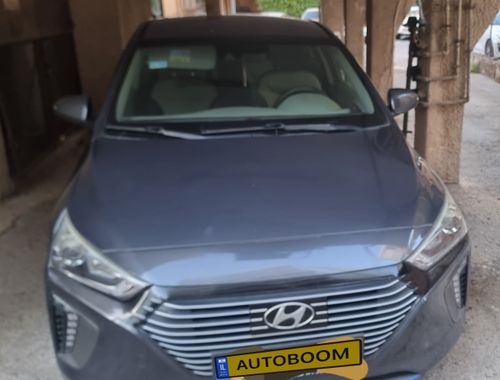
Hyundai IONIQ, 2019
₪ 72 000
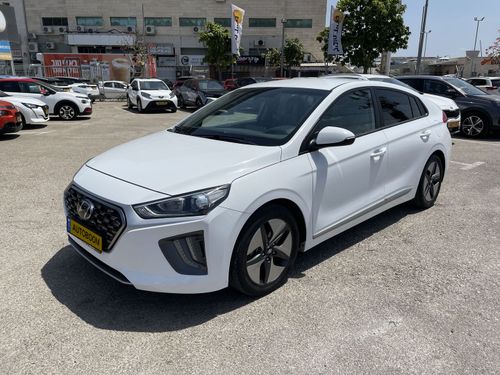
Hyundai IONIQ, 2021
₪ 107 275
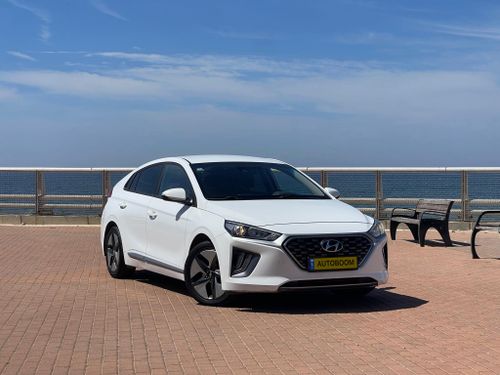
Hyundai IONIQ, 2021
₪ 105 000

Hyundai IONIQ, 2020
₪ 77 000

Hyundai IONIQ, 2022
₪ 89 000

Hyundai IONIQ, 2018
₪ 65 000

Hyundai IONIQ, 2021
₪ 89 000

Hyundai IONIQ, 2019
₪ 70 000
Compare similar cars Hyundai IONIQ and Hyundai Kona EV
Hyundai IONIQ and Hyundai Kona EV are two popular cars, each with its own unique advantages and features. The choice between Hyundai IONIQ and Hyundai Kona EV depends on the driver's needs and preferences.Hyundai IONIQ and Hyundai Kona EV are two popular cars, each with its own unique advantages and features. The choice between Hyundai IONIQ and Hyundai Kona EV depends on the driver's needs and preferences.
